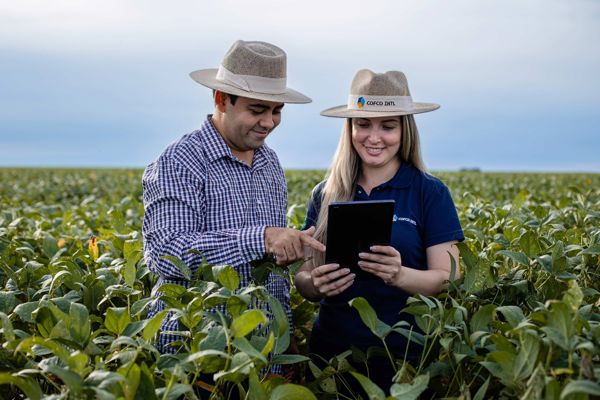
Guardians of Tomorrow: An early lesson in sustainable agriculture
Outside an elementary school in Santos, Brazil, a group of kids are busy getting very dirty. Their teacher encourages them to dig into the soil, explore its texture, and observe the spectacular variety of life it harbors. The children then handle small tree seedlings and plant them in the earth. Apart from endless fun, the children are getting an early lesson in sustainable agriculture.
Soil plays an essential role in the growth of food but there is a lack of general awareness about the upper layer of earth.
“The most interesting thing for the kids was that after the classroom activities, we took them to an open area of the school where they can grow plants and they have the opportunity to put their hands in the soil,” says Marcia Dutra Bastos, a COFCO Sustainability Ambassador based in Porto de Santos.
Marcia helps run the ‘Guardians of Tomorrow’ programme at Santos which teaches 9-to-11-year-old children the importance of keeping farming in balance with nature.
So far, the programme has reached more than 3000 pupils in over 40 schools across 38 municipalities - an achievement recognised when the initiative made it into the final for the MasterCana Community Award which recognises people and organisations for their contribution on human, technological and social-economic enrichment of the Brazilian agribusiness.
As well as practical sessions, a dedicated book with interactive for classroom activities help to get the message across.
“It’s very cool,” says 10-year old Gabrielly Barbosa Rodrigues Barros. “The book tells a story about guardians who defend the land from destruction. That’s cool.” Why? “Because we all need to take care of plants and nature.”
Despite the Covid-19 pandemic, Guardians of Tomorrow was able to continue online throughout 2020. Without the hands-on play but with a lot of benefit to the community.
It’s not just the children who benefit, they share their new-found knowledge with their parents, explains Marcia.
“By raising awareness among parents, students, teachers and the wider community, we believe we can make a connection between theory and practice, taking the reality of the agricultural sector into the classroom, and vice versa,” she says.
The programme underlines the interdependence of rural and urban communities, and the important role that agriculture plays in the economy. By introducing students to local farming, they build pride in their community and develop an interest in sustainable agriculture, such as beekeeping.
“We realised we had to do more to protect the pollinators that live around the cane fields,” says COFCO Sustainability Ambassador Matheus Tripodi, who runs COFCO's ‘Project Pollinate’.
“Not only have we managed to train beekeepers, we have engaged children of our employees on bee protection last year. The next step in our plan is to take Project Pollinate into schools as part of the Guardians of Tomorrow programme. Today’s school children in rural Brazil may be tomorrow’s farmers and agricultural leaders.”

